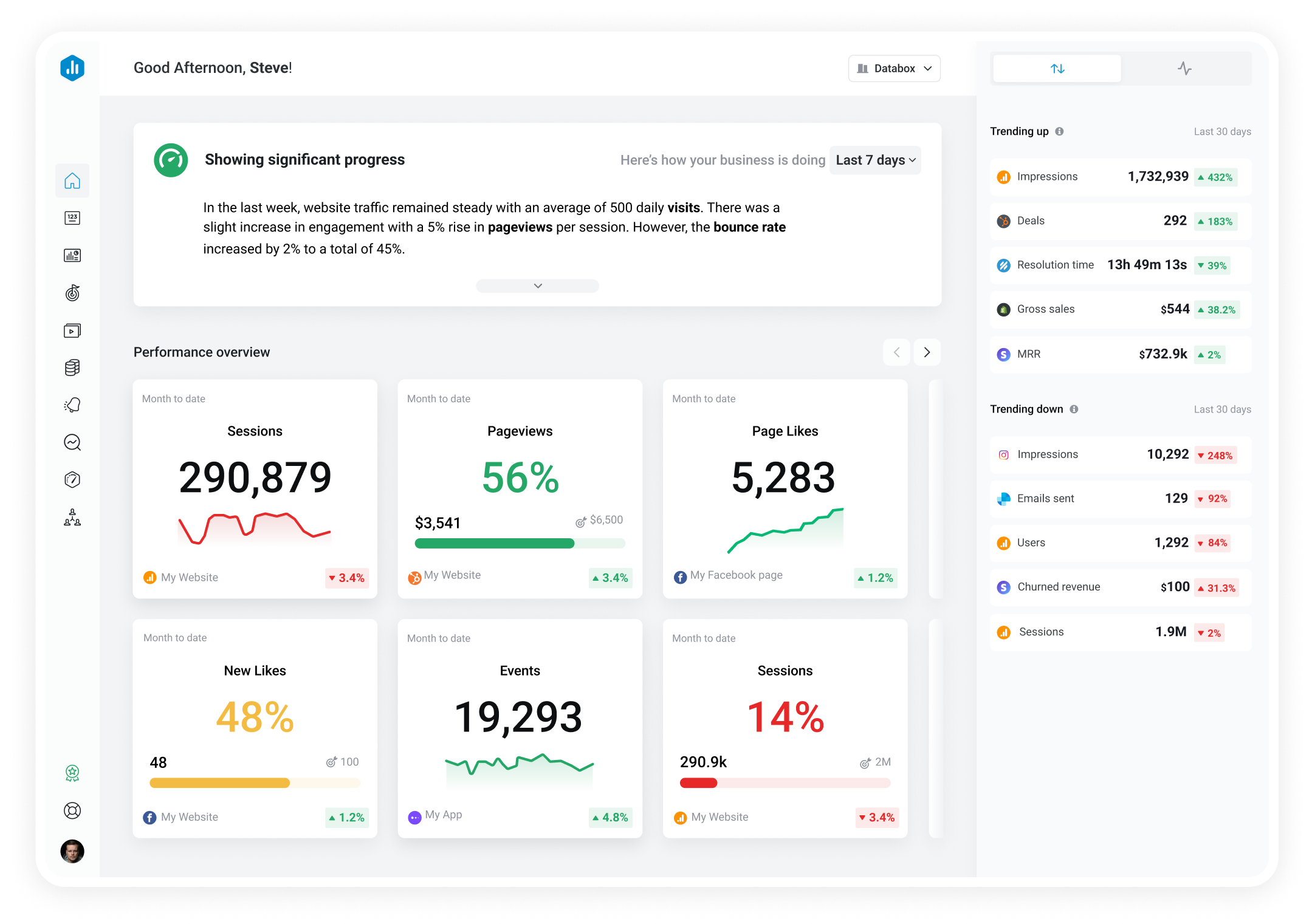Track all of your key business metrics from one screen
GET STARTED
 QuickBooks
Balance (Accrual)
QuickBooks
Balance (Accrual) The Balance metric refers to the difference between the total assets and total liabilities of a company at a given point in time. It indicates the financial position of the company and its ability to meet its financial obligations.
With Databox you can track all your metrics from various data sources in one place.

Used to show a simple Metric or to draw attention to one key number.
Databox is a business analytics software that allows you to track and visualize your most important metrics from any data source in one centralized platform.
To track Balance (Accrual) using Databox, follow these steps:
 Goals
Goals Scorecards
Scorecards Metric Digest
Metric Digest Metric Builder
Metric Builder Data Calculations
Data Calculations Performance Screen
Performance ScreenIn order for a Bank Account from Quickbooks to be visible in metrics in Databox, the Bank Account must be visible in the Balance Sheet report in Quickbooks under the Assets > Current Assets > Bank Accounts tree.
